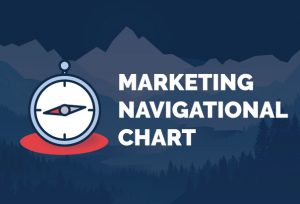Behind all the vague explanations and non-answers when questioned on its ranking algorithm, the main point of the SERPs, and specifically Google, is to serve up results that will help answer the user’s search intent. So it’s not a surprise that when discussing local SEO, user reviews are becoming more and more relevant, because that’s how many people make their decisions – reviews.
Per Moz’s 2017 Local Search Ranking Factors, Review Signals have increased to account for 13% of Local Pack/Finder ranking factors – the same as citation signals. Expect this number to only increase in the future, because Google is now testing out “Highly Rated” inclusions in the Local Pack for hotel listings and is serving up results based on native Google review stars for queries asking for the “best…”
Regardless of if these tests stick exactly as they are now is irrelevant, because the theme isn’t going away. Google is leaning toward their native reviews as an increasingly noteworthy ranking factor because this is how people make their decisions and increases the value of the result to the user. So how can you leverage reviews to your companies benefit?
Don’t Neglect Negative Reviews
Nobody wants a bad review, but these will happen. No matter how great your product or service is, you can’t make everyone happy. And unfortunately, it’s those who you don’t make happy that are the most likely to hop online and rant about it.
The first thing to remember when receiving a negative review is to keep your cool. Believe it or not, people will read the reviews left, not just check the star rating and leave. When you encounter a negative review, think of it as a way to show your investment in the customer and their issue as well as your brand as a whole.
A level-headed response will show that you take these seriously and want to better your business in the process. Being argumentative or defensive does not come off as professional, and readers will take notice.
While this is the case for most negative reviews, sometimes these have no basis in reality or are outright fake. In this case, you need to follow proper guidelines to report the review. If it goes against the guidelines, the platform should take it down and that’ll be a wrap.
Use Multiple Platforms
If we’re strictly talking ranking purposes, Google’s own reviews are the ones that will matter most. That said, there are still benefits to having reviews on multiple third-party platforms. Whether it be Yelp, Facebook, Avvo or any of the countless other review platforms out there, these can be beneficial for a variety of purposes. Namely, these reviews can show up the Knowledge Graph and give the user more review variety that can reinforce or change their current views.
Similarly, you can mark-up reviews on your own site with Schema, or structured data, and these can result in review stars showing up in organic search results as well.
Keep the Reviews Coming
If you look up a restaurant, and you only see reviews that are years old, it’s just human nature to think something isn’t quite right. That’s why a review acquisition strategy is just as important as getting the reviews in the first place. Keeping a steady stream of reviews will show users that your business is still open, customers are still engaging and that it’s legitimate.
There are endless ways of obtaining consistent customer feedback, including automated services like GetFiveStars, and it doesn’t matter much how you use these if you stick to guidelines, are honest in your acquisition and follow through.
Put yourself in the shoes of your customers. When you’re out there searching for a product, what do reviews tell you and how do these influence your purchasing decisions? Putting it in this perspective makes it clear – reviews are a way for users to gauge trust, quality, and consistency. Google has taken notice, and so should you.





















